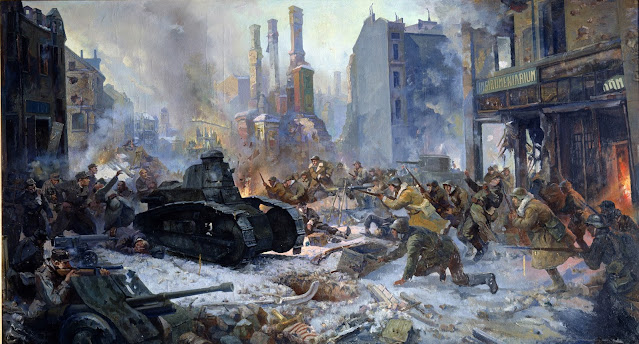MY ANCESTORS SPEAK
My ancestors:
Men in satin and velvet,
faces long and silky pale,
faintly glowing lips
and thin hands caressing faded folios.
Deep into the night they speak with God.
Merchants from Leipzig and Danzig
with clean cuffs, smoking fine cigars.
Talmudic wit. German niceties.
Their look is clever and lacklustre,
clever and self-satisfied.
Don Juans, dealers and seekers of God.
A drunkard,
a pair of converts in Kiev.
My ancestors:
Women bejewelled in diamonds like icons,
darkly crimsoned by Turkish shawls,
and heavy folds of Satin-de-Lyon.
But their bodies are weeping willows,
the fingers in their laps like withered flowers,
and in their faded, veiled eyes
lifeless desire.
Grand ladies in calico and linen,
broad-boned, strong and agile,
with their contemptuous, easy laughter,
with calm talk and uneasy silence.
At dusk, by the window of the humble house
they sprout like statues.
And coursing through their dusky eyes
cruel desire.
And a pair
I am ashamed of.
All of them, my ancestors,
blood of my blood,
flame of my flame,
dead and living mixed together,
sad, grotesque, immense.
They trample through me as through a dark house.
Trampling with prayers, and curses, and wailing,
rattling my heart like a copper bell,
my tongue quivers,
I don’t know my own voice—
My ancestors speak.
Anna Margolin was born Rosa Lebensboym in Belarus in 1887 and emigrated to the U.S. in 1913. Drunk from the Bitter Truth is the first English translation of the Yiddish poet Anna Margolin’s single volume, Lider (Poems), published in 1929.
Margolin was mysterious in her own time: early on, many in the literary intelligentsia thought a man was hiding behind her name. Although she lived and worked in New York in the midst of a Yiddish cultural explosion—by 1915, there were five Yiddish daily newspapers, with a combined circulation of half a million—she chose to remain an outsider. Most Yiddish-language poets were then writing in traditional forms, but Margolin declared that she was “insulted by the mechanical precision of the conventional rhyme.” Thus her poems are sensual, jarring, plainspoken, and hard, the record of a soul in direct contact with the streets of 1920s New York, where days are “holy and yellowed, / like the verses in an old prayer book,” and the sun “spreads on high / bridges of roses, bridges of smoke.” Margolin’s major themes of anxiety, loneliness, and a search for meaning run through all the sections of her book. Throughout, the great power of Margolin’s poetry is that it bears a long-range memory of past customs and a sense of the layers of ancient and modern history.
In “My Ancestors Speak,” Margolin presents an encapsulated history of the family, in which we can see the distancing from traditional values that the modern age exacted. In successive stanzas of this poem, Margolin reconstructs the generations of her own family and offers it up as a model for the condition of the Eastern European Jewish family after the Enlightenment.
From: Drunk from the Bitter Truth: The Poems of Anna Margolin (SUNY series, Women Writers in Translation) Paperback – January 2, 2017by Anna Margolin (Author), Shirley Kumove (Translator)
(Yiddish is a High German–derived language historically spoken by Ashkenazi Jews. It originated during the 9th century in Central Europe. The famous American Jewish writer and Nobel Laureate Isaac Bashevis Singer wrote in Yiddish language)











